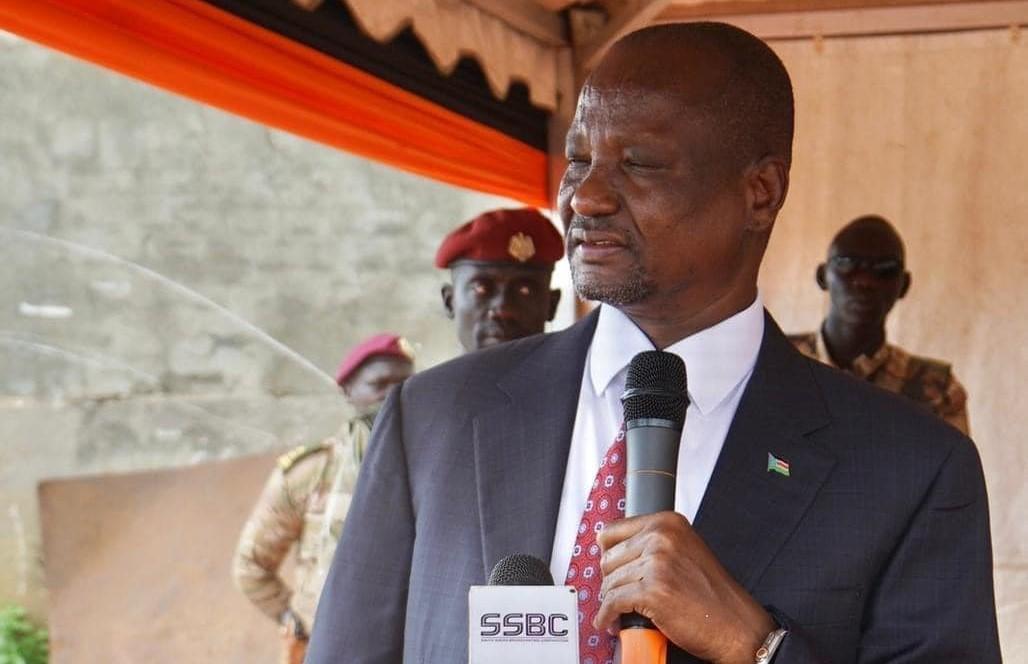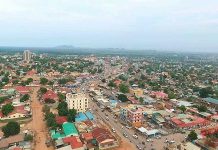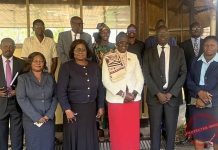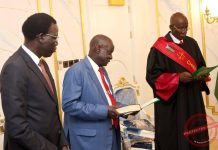Jenifer James
Africa-Press – South-Sudan. The Vice President and Chairman of Infrastructure, Taban Deng Gai, said the government lacks funds to implement the master plan for the construction of the Juba International Airport.
Taban, who addressed the closing of the three-day Juba Economic Forum on Wednesday, noted that the implementation of the master plan has been delayed due to a lack of funding to facelift the airport to international standards.
“We have the master plans for Juba International Airport. What has been delaying us is the issue of funding,” he lamented.
However, the vice president said there has been a great improvement at the Juba International Airport compared to the past few years.
In April 2021, South Sudan and NavPass penned a deal to claim ownership of South Sudan’s sovereign airspace and collect overflight fees so that non-oil revenue collection could be increased.
According to the Director-General of the Air Navigation Service, Stephen Rombe, Juba was supposed to take full control of its airspace in June 2022 from Khartoum.
However, Taban stated that South Sudan will take full control of the airspace from Sudan after the construction and the training of the staff to manage the control of the airspace.
“Very soon we are going to own our airspace control, which will be under our management, and the airspace is coming to us since there are technical people who have started the process,” Rombe said.
“We promise you that resolution number eleven under the infrastructure and Juba airport is happening, and we are also going to construct other airports and roads.”
In 2022, the minister of transport, Madut Biar, met with President Salva Kiir, on the issues of the construction of the Juba Airport in accordance with the model standard.
“The main thing was the air trafficking management system that built the system to allow South Sudan to control the lower and upper airspace,” Madut told the media at the time.
Madut said the new projects were to include the construction of the Juba Air Traffic Management System, a new air traffic control tower, and an operation building.
Since the independence of South Sudan until now, South Sudan has been controlling its airspace at an altitude of about 25,000 feet, while Sudan controls up to 60,000 feet.
Source: The City Review South Sudan
For More News And Analysis About South-Sudan Follow Africa-Press






